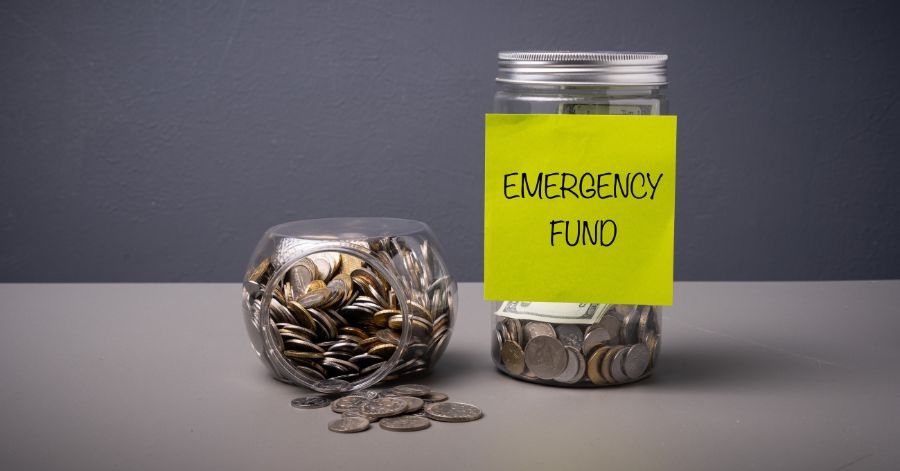
Managing your finances when money is tight can feel overwhelming, but small strategic steps can lead to significant savings. Whether you’re saving for an emergency or simply trying to make ends meet, these eight clever strategies can help you cut costs quickly and effectively.
Paying off debts ahead of schedule helps you save a considerable amount in interest payments. Start by listing your outstanding debts and focus on those with the highest interest rates. If you’ve taken out loans like short term loans, payday loans, etc., focus on repaying them early.
Early repayment not only reduces your financial burden but also improves your credit score. Use windfalls like tax refunds or work bonuses to make extra payments. Even rounding up your regular payments by a small amount can speed up your repayment timeline.
Avoid taking on new debt unless absolutely necessary and consider seeking free debt advice if you’re unsure where to start.
Eating out and frequent takeaways can rapidly deplete your budget. Instead, plan your meals for the week, make a shopping list, and cook in bulk to save time and money. Home-cooked meals are often healthier and more cost-effective.
Look for deals at local supermarkets and consider switching to own-brand items, which are often just as good as premium brands. Batch cooking and freezing portions can prevent food waste and reduce the temptation to order out on busy days.
Meal planning apps or a simple spreadsheet can help you stay organised and on track.
It’s easy to forget about those recurring subscriptions that silently drain your bank account each month. Review your bank statements and cancel anything you no longer use or need, whether it’s a streaming service, gym membership, or software subscription.
Consider replacing paid services with free alternatives. For example, opt for free YouTube workouts instead of an unused gym pass.
Even small savings can add up over time. Many apps can help identify and cancel unwanted subscriptions, making this process quick and painless.
Before making any purchase, check if there are active discount codes or cashback offers available. There are sites that offer cashback on everyday purchases from hundreds of retailers. Use supermarket loyalty cards to collect points and receive tailored discounts.
Sign up for newsletters to receive exclusive deals but avoid impulsive purchases just because something is on sale. Shop during seasonal sales and consider second-hand options for certain items.
Smart shopping habits can shave a surprising amount off your monthly expenses.
Take a look around your home, you’ll likely find items you no longer need or use. Clothes, electronics, books, and even furniture can be sold online via platforms like eBay, Facebook Marketplace, etc.
This not only declutters your space but also brings in extra cash that can be put toward savings or debt repayment. Make your listings attractive with clear photos and honest descriptions. If you have a knack for finding bargains, you could even flip second-hand goods for a small profit.
Owning and running a car in the UK can be expensive, especially with rising fuel prices, MOTs, and insurance. Switching to public transport or arranging a carpool with colleagues can lead to substantial savings.
Consider using a railcard if you travel frequently by train. Walking or cycling for shorter journeys is not only cost-free but also great for your health. If you must drive, combine errands into a single trip to cut down on fuel usage.
Many cities also offer discounted bus passes for students, seniors, or low-income individuals.
A no-spend challenge is a great way to reset your financial habits. Choose a timeframe, like a weekend, week, or month, and commit to spending only on absolute essentials. This forces you to get creative with what you already have and resist impulse purchases.
Track your progress and reflect on how much you saved at the end. Invite a friend to join you for added accountability and motivation. You might discover that you can live on less than you thought, and save more in the process.
Budgeting gives you control over your money and helps you make intentional financial choices. Begin by tracking every expense for a month to understand where your money is going. Use a spreadsheet or budgeting app to categorise your spending.
Then, create a realistic monthly budget that prioritises essentials and allocates money for savings or debt repayment. Review and adjust your budget regularly. Having a clear picture of your finances reduces anxiety and empowers you to make informed decisions.
Focus on budgeting for the things you value while cutting out unnecessary expenses. Small rewards and treating yourself occasionally keep motivation high.
Use a mobile budgeting app or a simple notes app to record every purchase immediately. Reviewing your spend weekly helps you stay on track.